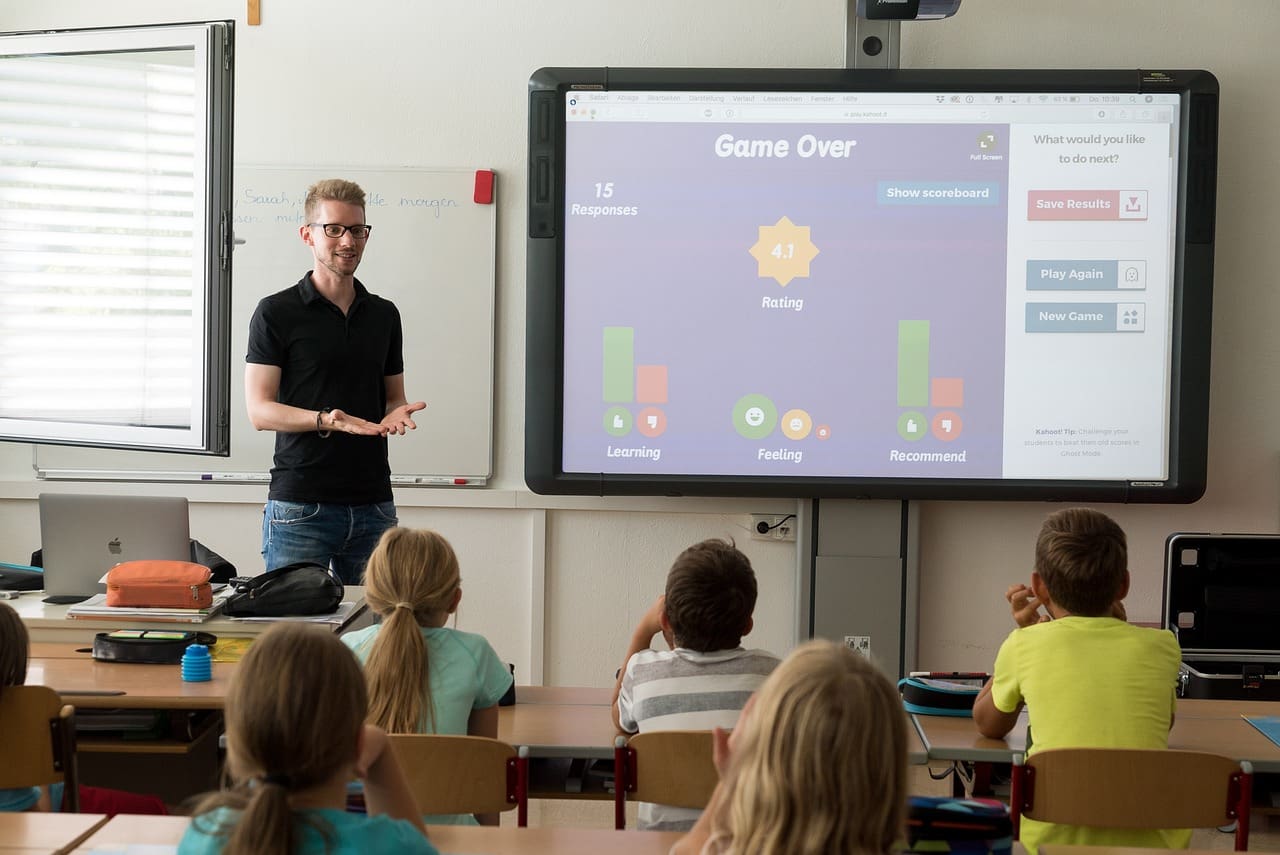Introduction to Head Start
Do you have a strong desire to improve the lives of young children? Do you believe every child deserves a head start on their educational journey? If so, you’ll be thrilled to discover the wide range of rewarding career opportunities within Head Start.
From teaching and mentoring to administration and support roles, there’s something for everyone committed to early childhood education.
In this blog post, we’ll delve into the exciting world of Head Start jobs, uncovering their benefits and how they positively impact children, families, and communities. Whether you’re considering a new career path or simply curious about what it takes to work in this field, join us as we unlock a wealth of opportunities waiting around the corner.
Benefits of Working in Head Start
Working at Head Start can be a rewarding and fulfilling experience for individuals passionate about positively impacting young children’s and their families’ lives. There are several advantages to going into this sector of work.
One of the main advantages of working in Head Start is the opportunity to help shape the future generation. Head Start programs aim to give children from low-income backgrounds a strong foundation for success by providing early childhood education and comprehensive services. As an employee, you can contribute directly to their growth and development, fostering their cognitive, social, emotional, and physical well-being.
Additionally, working in Head Start allows you to make a difference not only in the lives of children but also in their families’ lives. These programs emphasize family engagement and support by offering resources such as parent education workshops and connecting families with community services. By building meaningful relationships with parents or caregivers, you can empower them as advocates for their child’s education and overall well-being.
Furthermore, being part of a Head Start program provides professional growth and development opportunities. Whether you start as a teacher assistant or an administrator, there are various pathways for advancement within these organizations. Many programs offer training opportunities that allow staff members to enhance their skills and knowledge in early childhood education or related fields.
Different Types of Head Start Jobs
Head Start offers many job opportunities for individuals passionate about making a difference in young children’s and their families’ lives. From educators to administrators, various roles within the Head Start program cater to different skill sets and interests.
1. Teachers: These professionals play a crucial role in providing quality early education to children. They create engaging lesson plans, foster social-emotional development, and promote school readiness.
2. Family Advocates: Family advocates work closely with parents and caregivers to address their needs and connect them with community resources. They provide support, guidance, and assistance in housing, healthcare access, employment training, and more.
3. Health Specialists: Health specialists ensure that children receive proper medical care by conducting screenings, monitoring immunizations, promoting healthy habits through nutrition education programs, or coordinating dental services.
4. Mental Health Consultants: With a focus on mental wellness among young children and families alike, mental health consultants provide counselling services for emotional well-being while guiding teachers on effectively addressing behavioural challenges.
5. Disabilities Coordinators: These professionals assist in identifying developmental delays or disabilities among enrolled children while working collaboratively with families to develop individualized plans that meet each child’s unique needs.
6. Program Administrators: Administrators oversee the day-to-day operations of Head Start centres, ensuring compliance with regulations while managing budgets and supervising staff members across various departments like finance or human resources.
Each role within the Head Start program contributes towards creating an inclusive environment where every child has equal opportunities for success—regardless of their background or abilities.
Qualifications and Requirements for Head Start Jobs
Working in a Head Start program offers an opportunity to impact young children’s and their families’ lives positively. To ensure the success of these programs, there are specific qualifications and requirements that individuals must meet.
Most positions within Head Start require at least a high school diploma or GED equivalent. However, some roles may have additional educational requirements, such as an associate’s or bachelor’s degree in early childhood education or a related field.
In terms of experience, previous work with young children is highly valued. This can include volunteering at preschools or daycares, babysitting, or being a parent. Experience working with diverse populations and understanding different cultural backgrounds is also beneficial.
In addition to education and experience, all applicants must pass thorough background checks, including criminal history screenings. This ensures the safety and well-being of the children under their care.
Furthermore, excellent communication skills are essential for anyone seeking employment. Communicating effectively with children and adults is crucial for building relationships and facilitating productive interactions within the program.
Individuals interested in careers within Head Begin should have a genuine passion for early childhood education. A deep commitment to supporting child development and fostering positive learning environments will significantly contribute to one’s success in this rewarding field.
How to Find and Apply for Head Start Jobs
Looking for a fulfilling career in early childhood education? Look no further than the foremost position! With its mission of providing comprehensive services to young children and their families, Central Position offers many job opportunities that allow you to make a difference in your community.
So, how can you find and apply for these rewarding positions? Begin by exploring the official website of the Office of Foremost Position. You’ll find valuable resources such as job listings, program information, and application guidelines here. Additionally, consider contacting local organizations that administer foremost position begin programs—they may have openings not listed on the national website.
When applying for a Head Start job, tailor your resume and cover letter to highlight relevant experience working with children or families. Emphasize your passion for early childhood education and any certifications or degrees you hold.
Once you’ve submitted your application, remember to network! Connect with individuals already involved in the foremost position and begin community through professional networks or social media groups. They can provide insights into potential job openings or offer recommendations.
Remember that competition can be fierce for these positions due to their importance and impact. Stay persistent but open-minded—consider volunteering at a local foremost position to begin the program, as it could lead to future employment opportunities.
Success Stories: Real-life Experiences Working in Head Start
Every day, countless individuals find fulfilment and purpose by working in foremost positions in programs nationwide. These dedicated professionals play a vital role in shaping young children’s and their families lives, impacting their communities.
One such success story is Sarah, a teacher in the foremost position for over five years. She recalls how she initially joined the program with a passion for early childhood education but needed more experience. Through training and support from her colleagues, Sarah quickly grew into her role as an effective educator.
Another inspiring tale comes from Mark, a family advocate who works closely with parents to connect them with resources and services to improve their lives. Mark shares how he has witnessed firsthand the transformative power of Head Begin in empowering families to break cycles of poverty and achieve self-sufficiency.
And then there’s Maria, a home visitor who goes above and beyond to provide personalized support to needy families. Maria recounts heartwarming stories of witnessing children take their first steps or hearing parents express gratitude for her guidance during challenging times.
These are just snippets of the many success stories highlighting the immense impact of working in Head Begin programs. These individuals’ dedication to their roles enriches children’s lives and strengthens entire communities.
By fostering positive relationships with families, promoting early learning opportunities, and advocating for comprehensive child development services, those working within Head Begin have become change agents within their communities.
The experiences shared by these passionate professionals demonstrate that working at Head Begin is more than just a job – it’s an opportunity to make a difference, one child at a time. The rewards go far beyond monetary remuneration; they lie within knowing you’ve contributed to building brighter futures for future generations.
Conclusion: The Impact of Head Start Jobs on Children, Families, and Communities
Every day, Head Start jobs make a difference in the lives of children, families, and communities nationwide. The impact is far-reaching and transformative.
For children who attend Head Start programs, these jobs provide an invaluable opportunity for early childhood education and development. They are exposed to a nurturing environment that fosters their social-emotional growth, cognitive skills, and physical well-being. Through play-based learning activities and comprehensive services like health screenings and nutritious meals, Head Start jobs set children up for academic and personal success.
But it’s not just the children who benefit – families also experience positive changes through Head Start employment opportunities. Parents can take advantage of parent engagement activities that empower them to become advocates for their child’s education. They receive support in accessing resources such as healthcare or job training programs that can improve their economic stability.
Furthermore, the impact extends beyond individual families and radiates out into communities. By investing in early childhood education through Head Start jobs, we invest in our nation’s future workforce. We are building stronger foundations by equipping young learners with essential skills that will shape their educational journey for years to come. This investment has ripple effects throughout society – reducing poverty, improving graduation rates, and promoting community involvement.
FAQS
1. What is Head Start?
Head Start is a federally funded program that provides comprehensive early childhood education, health, nutrition, and parent involvement services to low-income children and their families. It aims to promote school readiness and support the overall development of young children.
2. What are the benefits of working in Head Start?
Working in Head Start offers numerous rewards. You have the opportunity to make a positive impact on the lives of children and families in your community. It allows for personal growth and professional development through ongoing training and support. Additionally, Head Start jobs often come with competitive salaries and benefits packages.
3. What types of jobs are available in Head Start?
There are various types of jobs available within the Head Start program. These include teachers, teacher assistants, family advocates, social workers, health professionals, administrators, bus drivers, cooks/nutritionists, custodians/maintenance staff members – to name a few! A wide range of opportunities suits individuals with diverse skill sets and interests.
4. What qualifications do I need to work in Head Start?
The qualifications required for each specific job may vary depending on the position’s responsibilities and requirements set by individual programs or organizations running them. Having at least an associate’s degree in early childhood education or a related field can significantly enhance your chances of securing a teaching position within Head Start. At the same time, other roles, such as family advocates, may require additional experience or certifications.
5. How can I find and apply for Head Start jobs?
Finding Head Start job openings near you can be done using online job portals like Indeed.com or by visiting local Community Action Agencies that often manage Head Start programs locally.
When applying for these positions, it’s essential that you carefully review all job descriptions listed so you understand what qualifications they’re looking for before submitting your application materials, which usually include a resume/CV along with a cover letter explaining why you believe this job would be a good fit based on your skills and experience.











It seems like the title “Unlocking Opportunities: Exploring the Many Head Start Jobs Available” is more focused on job opportunities rather than gaming. If you meant to request a comment related to gaming, please provide the correct title or details, and I’d be happy to help. If you intended to ask about opportunities in the gaming industry, please clarify, and I’ll craft a suitable comment for you.